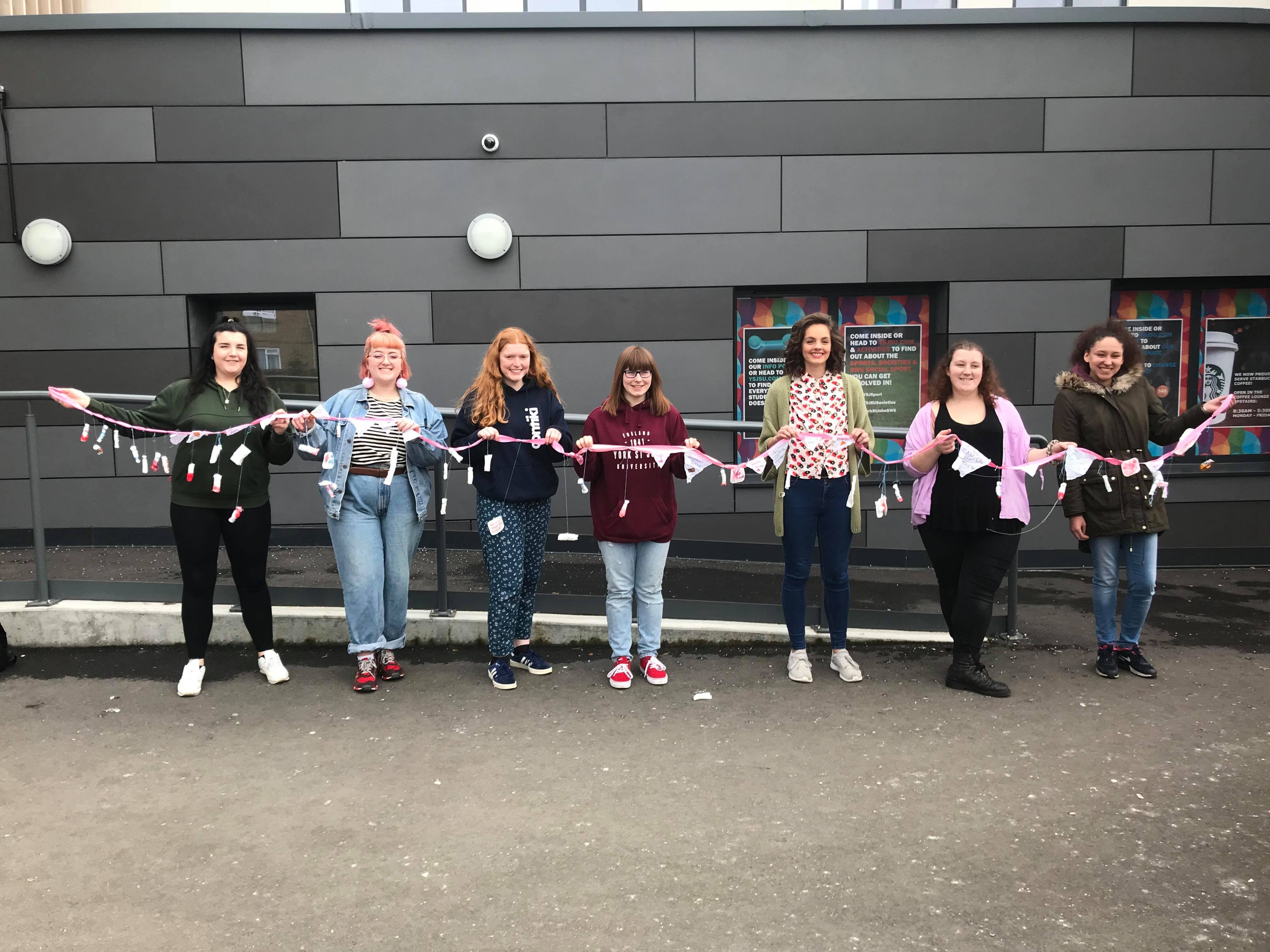According to BBC’s tampon tax calculator, being 21 and having started my period at around 12, I have so far spent approximately £387.39 on tampons of which £18.45 is Value Added Tax (VAT). A first glance perhaps this doesn’t sound like a lot, but if you remember that this tax is the result of sanitary products being classed as a ‘luxury’ then it starts to feel very different. As Natasha Preskey writes in the Independent:
The average woman buys, uses and throws away 11,000 tampons during her lifetime. In my local Tesco, a box of 20 regular Tampax costs £3.14. This means that someone earning minimum wage must work approximately 38 full working days to pay for her lifetime’s supply.
Across my own lifetime the BBC calculate estimates I’ll spend £1,510.81 on tampons; £71.94 of which will be taxed as a ‘luxury’.
These were the two big issues The Pink Ladies (myself, along with Jo-Jo Hall, Maisie Hayward, Marcia Sanderson, Rebecca Sheard, Lorna McCullough and Courtney Uddoh Mitchell) wanted to investigate and perhaps even tackle through our arts activist project as part of the second year Politically Engaged Practice module. We wanted to raise awareness of the tax which is placed upon sanitary items because the government have deemed them a luxury. You might be interested to know that helicopters, for example, aren’t taxed in the same way because they, of course, aren’t a luxury and are a daily necessity in people’s lives. In contrast children’s car seats are taxed…
We also wanted to emphasise the fact that whilst the luxury tax on top of the already ridiculous price of tampons was clearly absurd, we were fortunate enough to be able to afford them but know that there are thousands of women who cannot and who have to make choices between feeding their family, paying the rent and purchasing sanitary products. This is what sparked our group into action.
We launched our own arts activist project in the form of a tampon/pad making workshop. We were situated in the student’s union and invited people who passed through to come and have a go at making these sanitary products from cost effective craft items – items which would cost less than a box of tampons. We did this to show that if students could find a way to make a tampon for less than 2p (albeit not entirely safe to use, this was art not science) then why couldn’t the Government try to find a solution too? We also wanted an intriguing project to attract people’s attention and open a conversation about period poverty.
Overall the event felt like a success, with feedback being positive and our bunting full with sanitary products. However it did feel a little odd to just stop once the module had finished: we’d all chosen this project because it was something we felt strongly about, it was more than or bigger than simply something we did for assessment. So we were delighted when we were approached by Anne-Marie Evans (Senior Lecturer in English Literature at YSJ) asking if we would like to restage the event as part of a period poverty workshop in Beyond the Vote – a festival celebrating the centenary of women gaining the vote in 1918.
It was perfect! We’d found with the first event that though we’d had conversations with the students about period poverty and the ridiculousness of the tax, it hadn’t been as in-depth as we’d have hoped. The Beyond the Vote workshop allowed us to do this, as well as show that conversations around periods and the things we use for them didn’t need to be taboo subjects anymore. Every woman should be able to talk about it, and every woman should be entitled to the products they need for it. We had an older lady present at the workshop who was relieved that conversations were finally happening around periods and the prices of sanitary products. Later a male student approached, initially wary about taking part because of the stereotype of women blaming men for their struggles; by the end of the workshop he said he realised we weren’t looking to blame but instead just wanted things to change.
By Anne-Marie Chave




